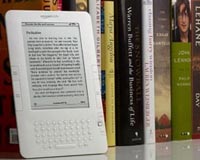 |
Taipei (AFP) Feb 10, 2010 Taiwan on Wednesday relaxed restrictions on flat screen and microchip investment in China as it seeks closer high-tech ties across the Taiwan Strait. Taiwanese liquid crystal display (LCD) companies can set up assembly plants in mainland China, benefiting from cheap labour. But restrictions exist to avoid giving China a technological advantage. Under the new rules, Taiwanese LCD makers will be allowed to invest in "fifth-generation" plants in China, according to a statement released by the economic ministry. They will also be allowed to invest in "sixth-generation" plants on the mainland on condition that they keep more advanced technologies at home, it said. "In so doing, Taiwan would be able to make sure its LCD makers sustain technology superiority over their Chinese competitors while tapping the mainland's vast market," an economic ministry official told AFP. China still sees Taiwan as part of its territory awaiting reunification, by force if necessary. However, ties have improved markedly since the Beijing-friendly Ma Ying-jeou became Taiwan's president last year. Following the announcement, AU Optronics Corp., Taiwan's second biggest LCD panel maker, said it would apply soon to build a "7.5th-generation" LCD plant in China. "A 7.5G plant will bring more competitiveness to us in serving customers," company spokeswoman Yawen Hsiao said. AUO's most advanced manufacturing facility in Taiwan is an 8.5-generation plant that can produce 50-inch class LCDs, compared with 40-inch class panels produced by 7.5G plants. Taiwan's opposition, which favours independence from Beijing, has repeatedly warned against easing controls, fearing closer economic integration. But calls for easing controls on investment in the mainland have mounted among Taiwan's high-tech businesses, which point out their competitors from South Korea and Japan have been stepping up activity there. Taiwanese microchip makers will also will be allowed to merge or invest in their Chinese peers, while being barred from investing in plants migrating to state-of-the-art 12-inch (30-centimetre) technology. Currently, Taiwan companies are allowed only to build eight-inch wafer plants in China. In December South Korea, which strongly rivals Taiwan in information and technology industries, approved plans for massive investment in China by Samsung Electronics Co. and LG Display Co., paving the way for their expansion in the rapidly growing market. Taiwanese businesses are among the biggest players on the mainland, with an estimated 150 billion US dollars invested there. -- Dow Jones News Wires contributed to this story --
Share This Article With Planet Earth
Related Links Space Technology News - Applications and Research
 US book publishers smiling again as Kindle rivals emerge
US book publishers smiling again as Kindle rivals emergeNew York (AFP) Feb 7, 2010 US book publishers are smiling again, after years of watching digital versions of their titles sell for below what they thought they were worth. A host of rivals to the market-dominating Kindle electronic reader has given newfound hope to publishers that they will finally be able to dictate their own terms after being at the mercy of Amazon. Rupert Murdoch, whose News Corp. stable includ ... read more |
|
| The content herein, unless otherwise known to be public domain, are Copyright 1995-2010 - SpaceDaily. AFP and UPI Wire Stories are copyright Agence France-Presse and United Press International. ESA Portal Reports are copyright European Space Agency. All NASA sourced material is public domain. Additional copyrights may apply in whole or part to other bona fide parties. Advertising does not imply endorsement,agreement or approval of any opinions, statements or information provided by SpaceDaily on any Web page published or hosted by SpaceDaily. Privacy Statement |